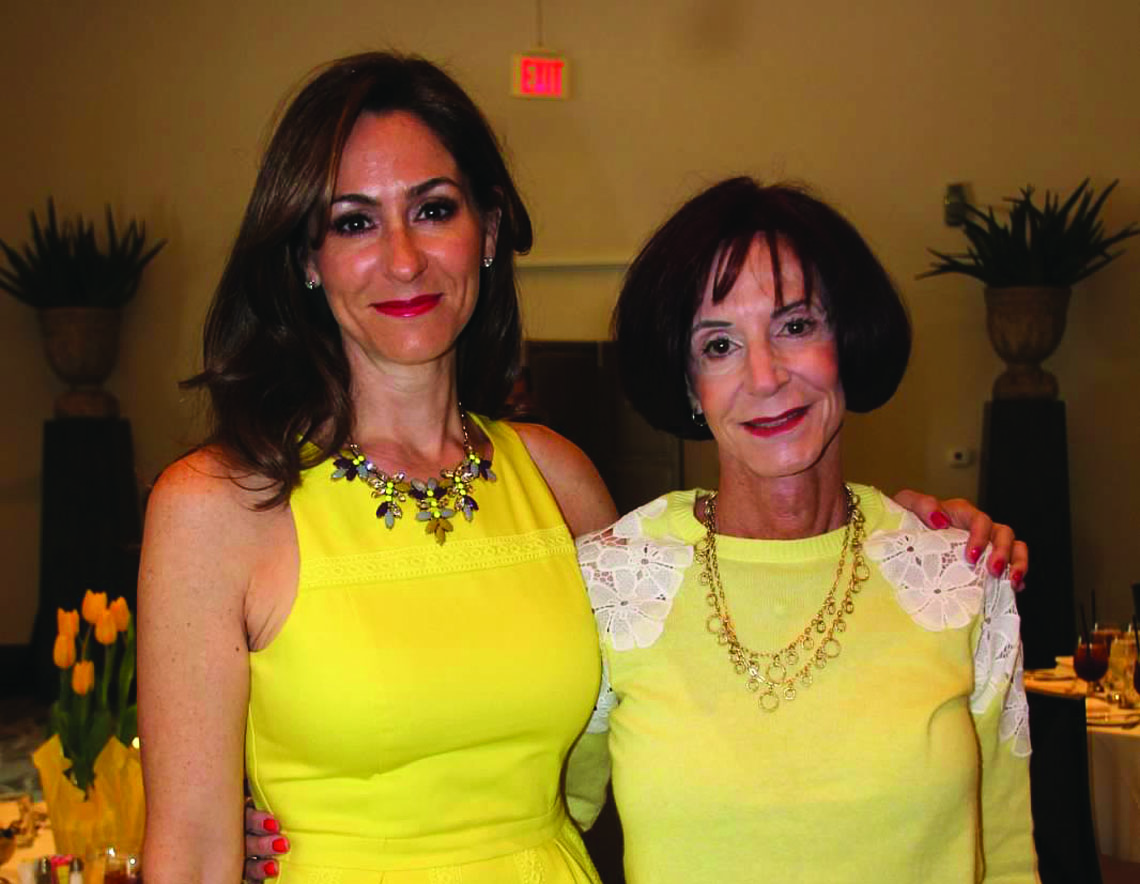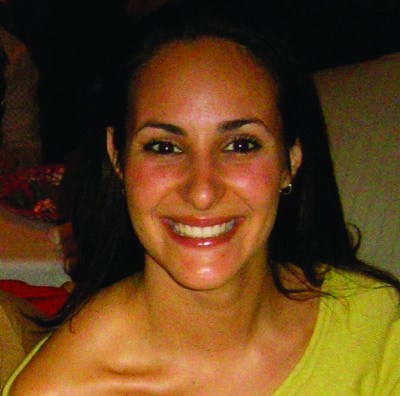 Shane Gold Burwick and her unborn son died after she developed a blood-clotting condition. Her family, led by Burwick’s mother, Roberta Gold (right), responded by starting a foundation in her name. Her sister, Robyn Fener (left), serves as executive director. Photos courtesy of Robyn Fener
Shane Gold Burwick and her unborn son died after she developed a blood-clotting condition. Her family, led by Burwick’s mother, Roberta Gold (right), responded by starting a foundation in her name. Her sister, Robyn Fener (left), serves as executive director. Photos courtesy of Robyn Fener It was supposed to be a joyous time.
Shane Gold Burwick, 31, of Encino, was in the prime of life. She recently had gotten married, had established a successful career licensing wireless content for Sony Pictures and was expecting her first child.
Then, tragedy stuck.
Unbeknownst to Burwick and her family, she had developed a blood-clotting condition called thrombophilia. After a few painful months and an eventual diagnosis, Burwick and her unborn son died in January 2010.
But the story doesn’t end there.

Burwick’s untimely death eventually gave life to a new passion and purpose for her family: educating the public and the medical community about blood-clotting disorders related to contraceptives, pregnancy and post-pregnancy. Led by Burwick’s mother, Roberta Gold, the family launched the Shane Foundation (shanefoundation.org) in October 2013 as a partner of the March of Dimes. Since then, Gold has become a leading expert on blood-clotting disorders affecting women. The foundation also is raising money to fund medical research in Israel that Gold hopes will help prevent women from suffering the same fate as her daughter.
“I felt that if I don’t do something, this anger, if you allow it to be directed inward, it’s extremely destructive on all levels,” Gold said in explaining her decision to start the foundation. “This was my only choice. [This condition] is horrifying, and the deeper I dug, the more horrified I became.”
Gold said that as she pored through medical studies and other information about blood-clotting disorders, she began to realize her daughter’s death was not the anomaly she at first believed. Thousands of other women, she discovered, also had suffered complications from blood clots during pregnancy that, for many, led to premature birth, miscarriage, stillbirth or their own death. In fact, Gold and her family became convinced that Burwick’s death could have been prevented if the medical community had been more knowledgeable about her condition and provided more proactive and effective treatment.
Burwick had shown signs of having a heightened risk for blood clots about 18 months before she conceived, when she survived a life-threatening blood clot in a lung after taking the oral contraceptive Yasmin. Gold believes the contraceptive, which lists blood clots among its possible side effects, initiated Burwick’s blood-clotting disorder. Had Burwick and her doctors been aware of the possible connection between her illness and the drug, Gold believes, her daughter’s subsequent problems could have been identified and treated successfully.
Blood clots are a leading cause of maternal death in the United States, according to the American Congress of Obstetricians and Gynecologists. A blood clot occurs when blood coagulates into a clump that partially or completely clogs a blood vessel. Blood clots can cause life-threatening damage to vital organs, such as the brain or lungs, and can interfere with the development of the fetus in pregnant women.
About 1 in 5 people in the United States has a blood-clotting disorder, which can be inherited or acquired later in life, according to the March of Dimes. Studies show certain contraceptives significantly increase the risk of blood clots, and pregnancy alone can increase a woman’s risk for blood clots because of changes in hormones and blood composition.
Despite the prevalence of blood-clotting disorders and the potential consequences for women and babies, doctors do not routinely test women to see if they are at risk. Burwick’s sister, Robyn Fener, who is the Shane Foundation’s executive director, said blood tests performed before prescribing contraceptives, during pregnancy or before moving forward with a cesarean section can help prevent blood clot-related tragedies. Doctors also should regularly ask women whether they have a family history of blood clots, she said.
To address these issues, the Shane Foundation has produced written materials on the subject for doctors and patients, and Gold and Fener have spoken to medical organizations around the country.
“The issue for us,” Gold said, “is how are these women going to be identified? How do you know if you’re one of those who should not take Yasmin, who should not take all the fourth-generation contraceptives? And, unfortunately, the only way we know now is when you’re suffering a pulmonary embolism and can’t breathe. And all of these things happened to Shane.”
But tests don’t always succeed in identifying women at risk of blood clots. That’s why the Shane Foundation is raising money to fund research at Hadassah Medical Center in Israel that Gold and Fener hope will lead to a better understanding of who is susceptible and ultimately to better treatment and prevention. They will be launching their fundraising efforts at Sinai Temple on May 16, with an initial goal of $40,000.
In recognition of her expertise, Gold recently was appointed a nationwide patient advocate for the Washington, D.C.-based Council on Patient Safety in Women’s Health Care. She also serves as a member of the California Maternal Quality Care Collaborative at Stanford University, which works to improve maternity care and prevent maternal and fetal deaths.
Gold said she’s beginning to see the foundation’s efforts pay off, with more doctors paying attention to the issue of contraceptive- and pregnancy-related blood clotting. Even so, she believes more public awareness of the problem is needed, a goal the foundation continues to pursue.
Gold said her work with the Shane Foundation has helped her channel her anger over her daughter’s death in a positive direction.
“Ultimately, there is no path that can be restorative on the levels that we really want, and that’s the worst thing to try to find a way to face,” she said. “We busy ourselves with this other direction, and because we’ve chosen the other direction, we have seen and are seeing tremendous progress.”






















 More news and opinions than at a Shabbat dinner, right in your inbox.
More news and opinions than at a Shabbat dinner, right in your inbox.